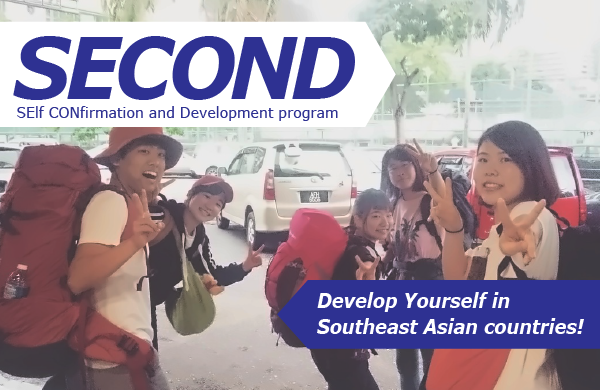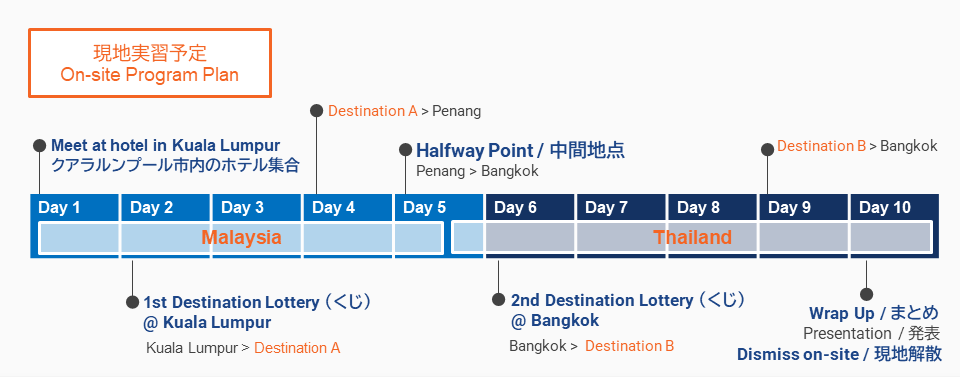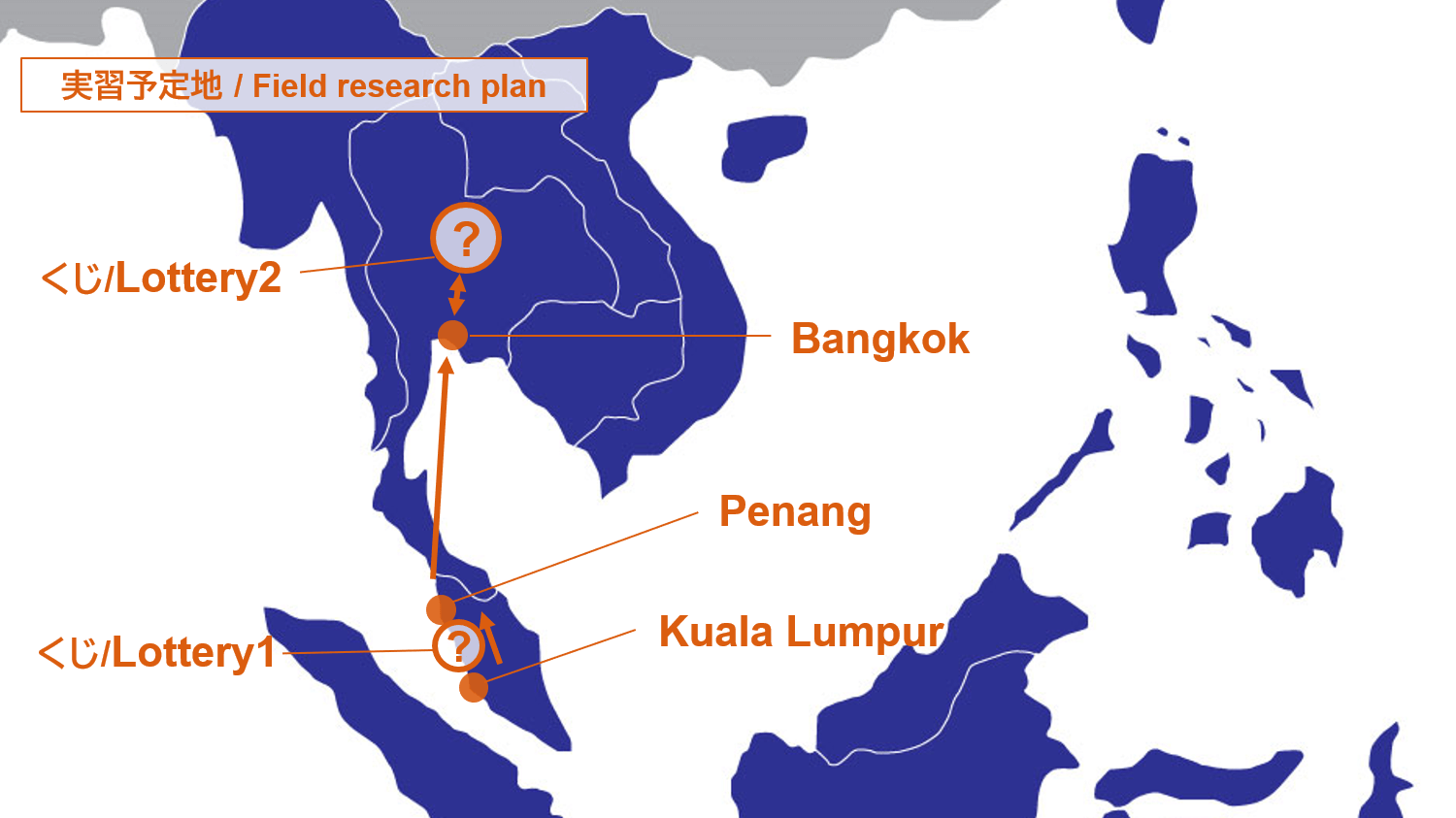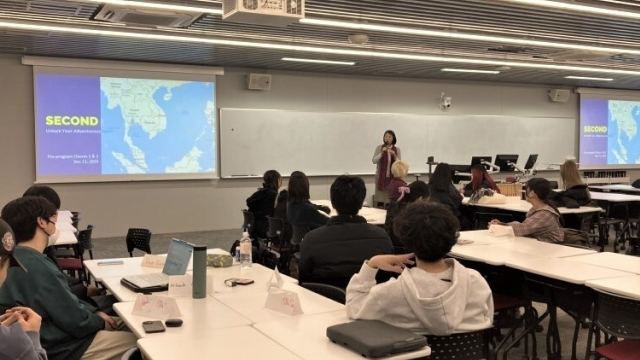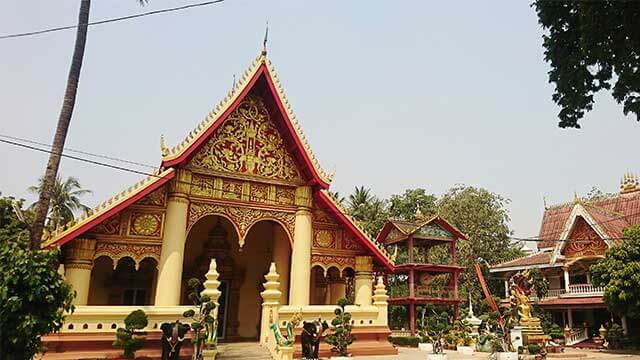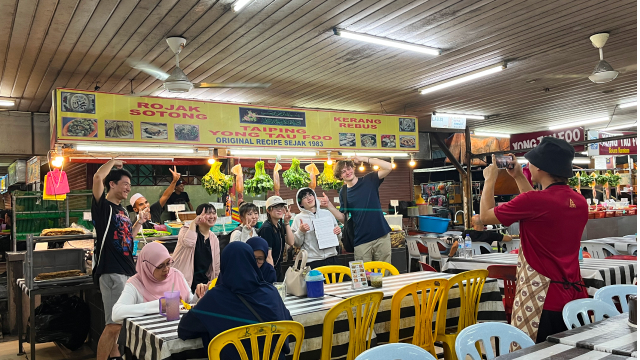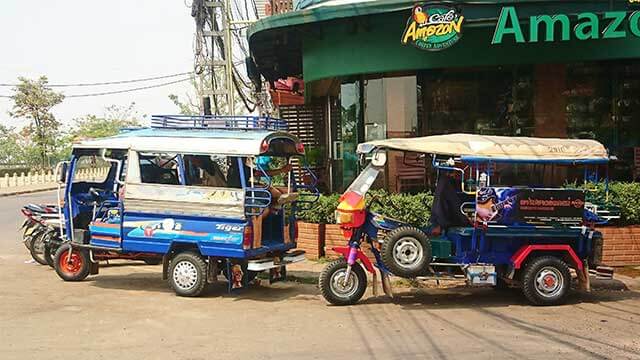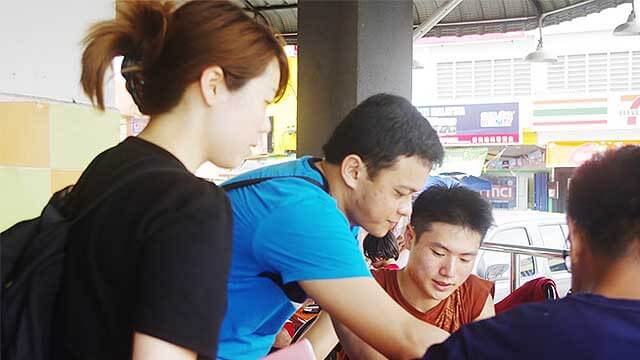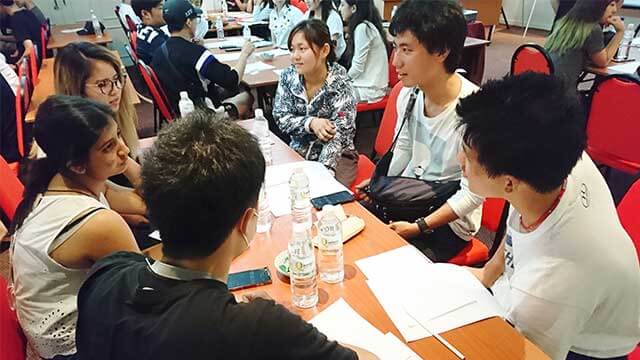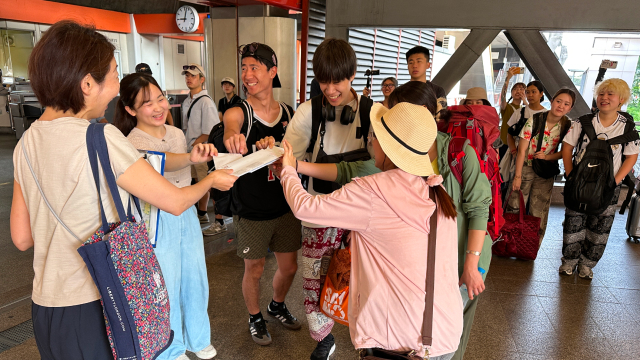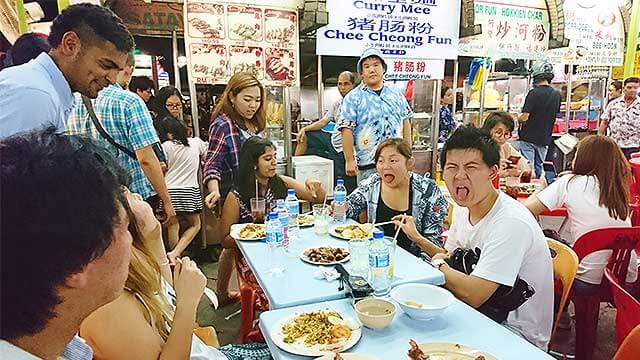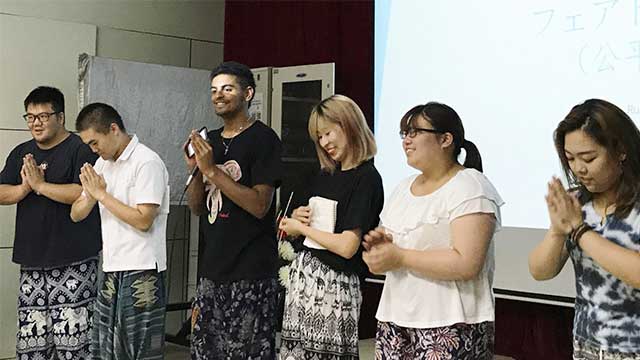The SECOND program (SElf CONfirmation and Development program) is designed to offer 1st - 3rd semester students (domestic and international) an understanding of the cultural diversity of Southeast Asia through engaging in research work there for approximately two weeks.
Based on FIRST, APU's 4-5 day intercultural experience program for first-year students, SECOND takes this content and develops it further.
The program is run entirely bilingually, in Japanese and English. During the roughly 10-days on-site field research period that is the main part of the program, participants travel around Malaysia and Thailand entirely under their own power as a group and carry out their mission, such as reaching their destinations, which will be decided by "lottery", and conducting investigative surveys. Participants will gain initiative and confidence through carrying out research in another culture where they might not communicate through language that they know. Additionally, in having participants engage with their on-site studies at length, the program aims for participants to become highly skilled in intercultural observation and to acquire research method basics that can connect to their subsequent major education.
Program
Just like FIRST, this program revolves around small group work. In pre-program classes, participants will research and learn about the countries to which they will travel and they will prepare the surveys that they will collect. In the on-site field research, participants will reach their destinations, which will be determined by lottery, entirely under their own power as a group and carry out their surveys. Participants will give presentations on the results of their investigations, and review their experience in the post-program classes.
→Please review the FIRST program page for a detailed outline of the program.
Grow with SECOND! 1
Deepening Understanding of Southeast Asia's Diverse Societies and Cultures
Southeast Asia is the field for SECOND. In the pre-program classes, participants gain an understanding of the countries to which they are being sent, an overview of the region, and the cultures. They also undertake research on the regions to which they will be sent and select a topic for investigation. During the on-site field research, participants will become highly skilled in intercultural observation through interaction with local individuals in Southeast Asia.
Even though the countries in the region are grouped together and refered to overall as Southeast Asia, the situations surrounding the religious, cultural, political, economic, and social systems are varied. Participants will learn to understand each land through their own experiences and, while moving between multiple countries, also how cultures cross borders.
Grow with SECOND! 2
Improving Proficiency in Japanese-English Bilingual Communication
Both domestic and international students can participate in this program. Classes are integrated, proceeding bilingually in Japanese and English. The presentations on the results of group’s investigations will be held in that student's opposite language (English for students admitted on a Japanese-basis, and Japanese for students admitted on an English-basis). Participants will be able to boldly challenge themselves precisely because they are lowerclassmen who are not yet comfortable in their opposite language. The program aims for improvement in communication skills through multicultural collaborative study where mixed groups of domestic and international students hold discussions and undertake on-site field research and through interaction with citizens in those locales who sometimes do not understand English.
Grow with SECOND! 3
Looking at One's Unique Traits and Developing Toughness
In SECOND, participants travel around multiple countries entirely under their own group members’ power during the approximately two-week on-site field research period. While the language and cultural differences will stimulate their curiosity, there will also be times when situations to which they find it difficult to adapt will arise. Further, they will come to see their own strengths and weaknesses as they face a variety of stresses, such as the conflicts of opinion that occur in long-term group work as well as issues with their physical fitness and health. As participants overcome difficulties on their own and, sometimes, together with their friends, they will acquire the problem-solving skills, survival skills, and stress tolerance that makes it possible for them to be active outside their comfort zone*.
*Comfort Zone: that pleasant place where one can relax and there is no stress.


